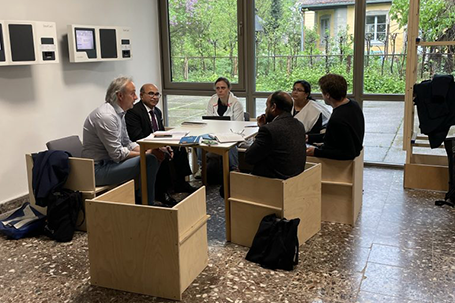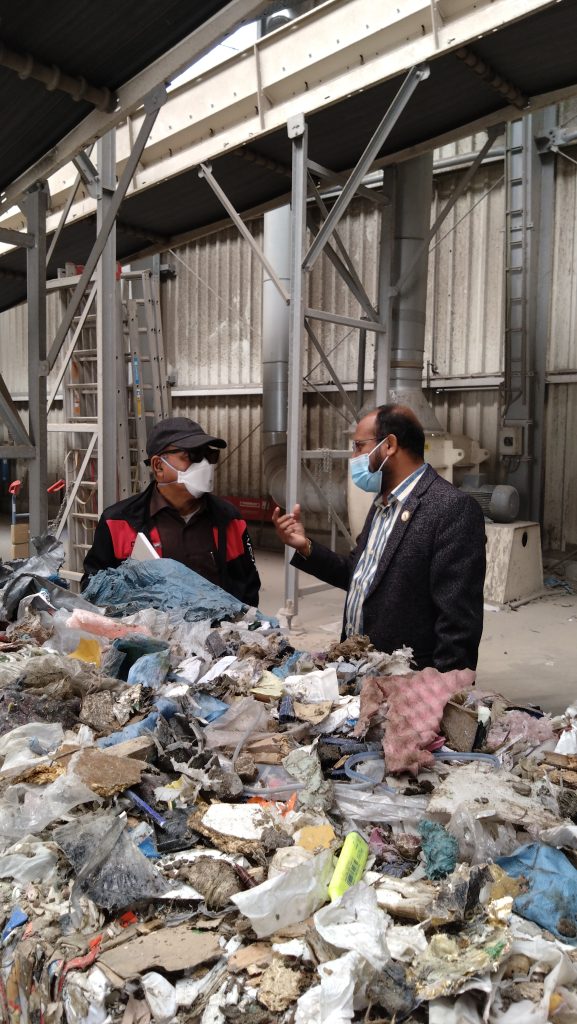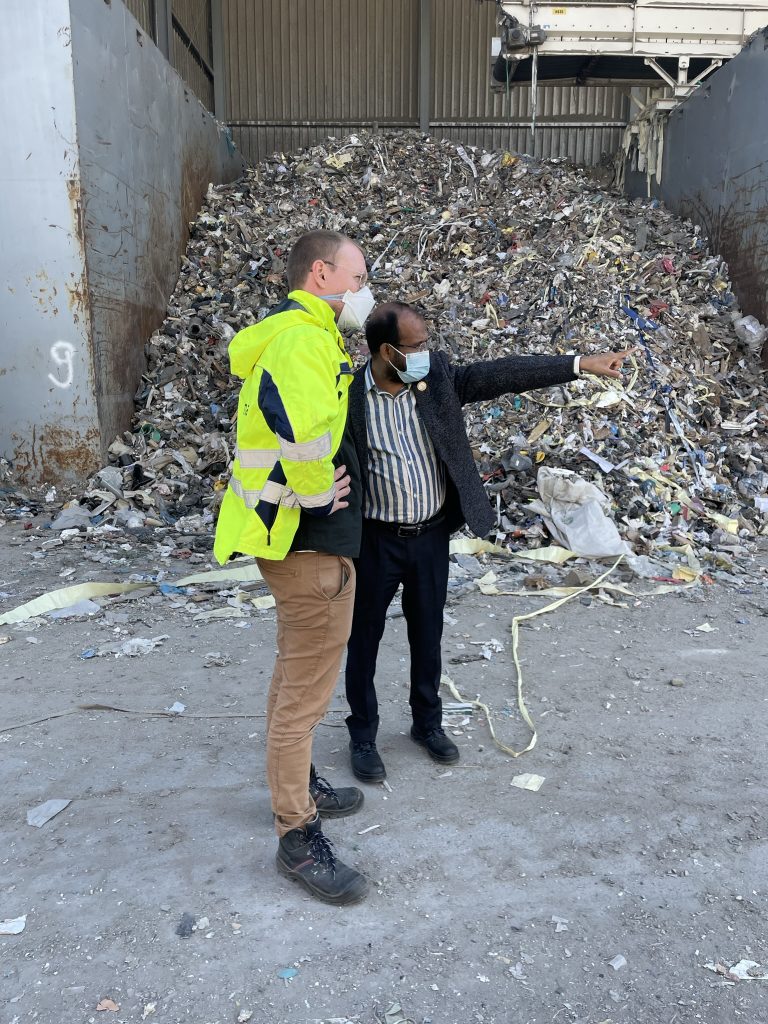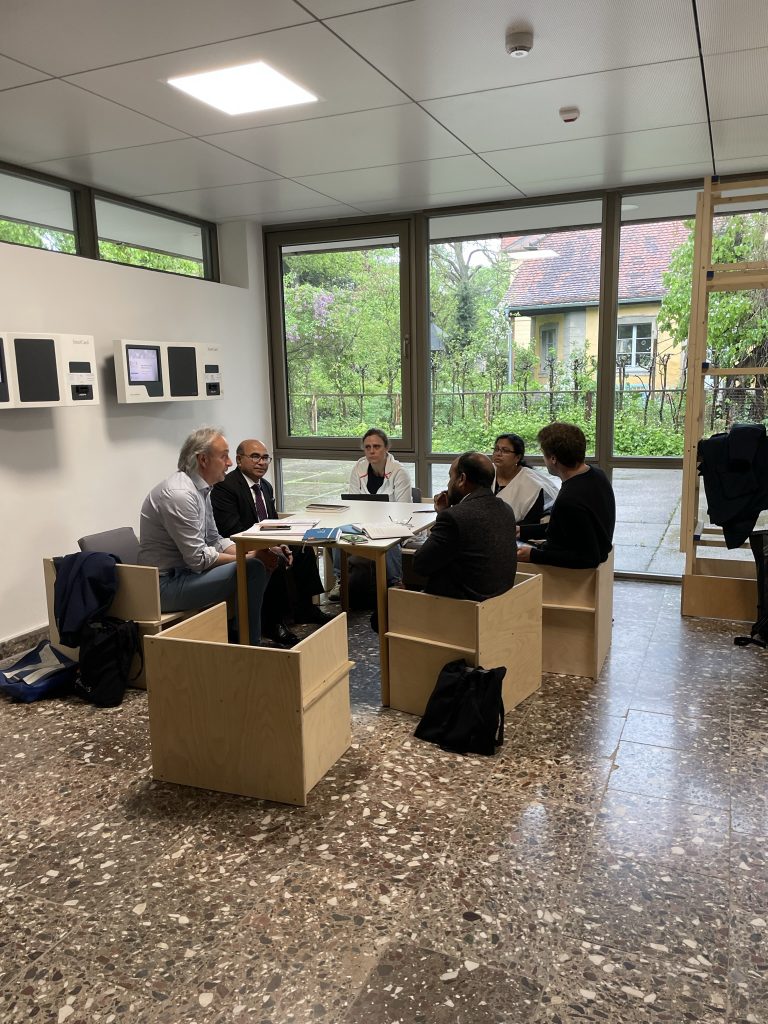I’m Sadia Afreen, from Bangladesh. Since autumn 2022, I have been working as student assistant in the SCIP project at ISOE.
About me: I got my bachelor’s degree in civil engineering in Bangladesh. After my bachelor I had worked in the Institute of Water Modelling in Dhaka, before I received a DAAD scholarship for the Master program “Tropical Hydrogeology and Environmental Engineering (TropHEE)” at the Technical University Darmstadt in 2021.
Prior to my involvement in the SCIP project, I had no clue about Bangladesh’s waste management systems, as my work experience focused on water issues. When I attended a course on the German Waste Management System, I had two “aha-moments”: First, I understood waste is no useless dirt, but a resource; second, I realized how rudimentary and lacking behind standards my home country’s waste management system is. This made me feel disheartened. However, working at SCIP gives me the opportunity to contribute to the solution of the critical issue of waste management in my home country.
From my work experience in the water sector, I know how difficult it is to coordinate between the relevant actors involved. Indeed, this has often hindered progress in problem solving. The common challenges in both the water and waste sectors are limited infrastructure, political instability, and most importantly, public awareness. Through extensive literature research, I have gained a comprehensive understanding of waste management in Khulna as well as other countries in the global south. I have studied issues related to waste collection, disposal, and recycling. It was particularly exciting for me to learn more about the role of the informal sector in waste management. In many places, the informal sector makes an important contribution to waste management. However, society and local authorities often ignore this contribution. Therefore, I appreciate that we, in SCIP, pay special attention to the informal sector. It is important to consider their key role in order to develop inclusive, socially and environmentally sustainable waste management solutions.
At ISOE, I have the privilege of meeting people from different disciplines, including sociology, human geography, biology, physics, and engineering, among others. They all bring their own unique perspectives and insights to the projects they are working on. In Bangladesh, it is a bitter truth that most people with academic backgrounds who are not engineers or medical doctors are not valued. The general assumption is that their work does not add value to society. However, while working at ISOE alongside these experts, I was amazed at their extensive knowledge and skills, as well as their ability to think creatively and lead projects to success.
Working at ISOE is a nice experience for me because the working environment is very welcoming. There is a lot of emphasis on work-life balance, which was previously neither imaginable nor feasible for me in Bangladesh. On my first day at work, I was fascinated and amazed when one of my colleagues gave me a detailed tour of the office and showed me everything, from the stationery to the kitchen. In Bangladesh, newcomers rarely receive such a detailed tour and not even shown the emergency exists.
But not only the ISOE team is great, but the whole SCIP team in Weimar, Khulna and Chattogram is very friendly, understanding and open-minded.
I am really looking forward to continue working with ISOE and within the SCIP project. Let us work together towards creating a better world not only for ourselves but also for future generations to come.
“The world as we have created it is a process of our thinking. It cannot be changed without changing our thinking.” Albert Einstein
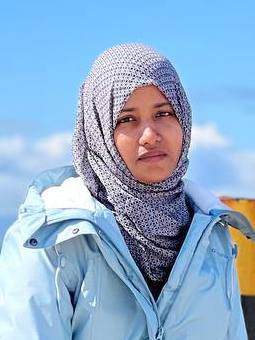
About me: I got my bachelor’s degree in civil engineering in Bangladesh. After my bachelor I had worked in the Institute of Water Modelling in Dhaka, before I received a DAAD scholarship for the Master program “Tropical Hydrogeology and Environmental Engineering (TropHEE)” at the Technical University Darmstadt in 2021.

